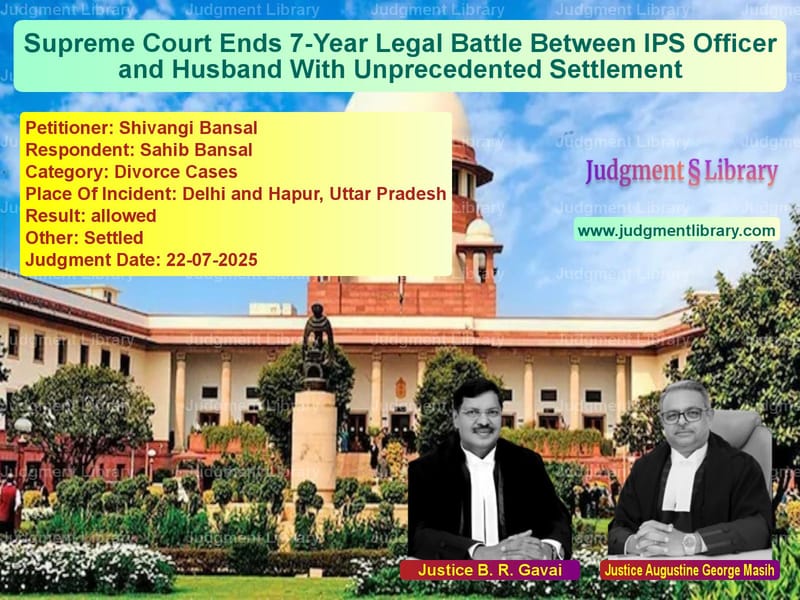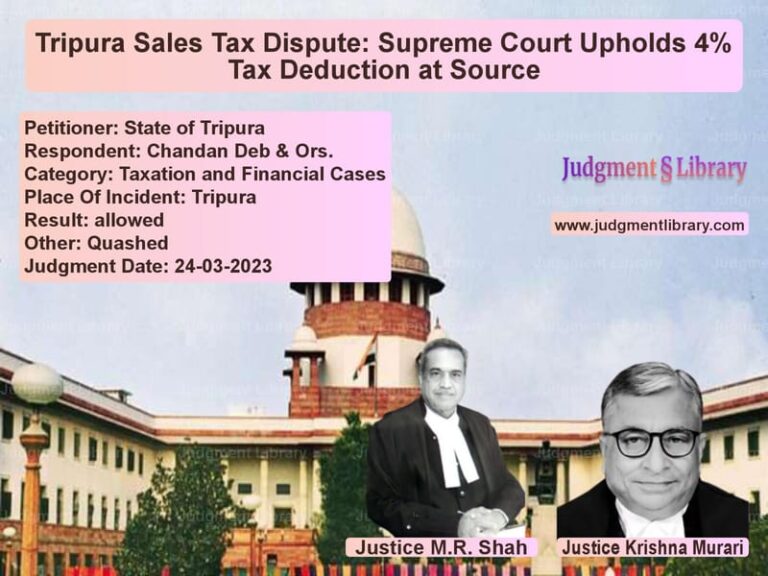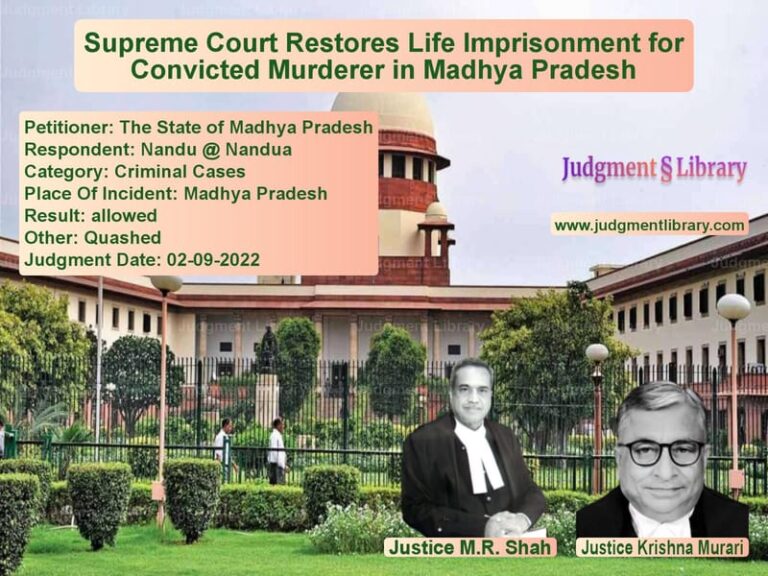Supreme Court Ends 7-Year Legal Battle Between IPS Officer and Husband With Unprecedented Settlement
In a landmark judgment that brings closure to one of the most protracted and litigious matrimonial disputes in recent memory, the Supreme Court of India has delivered a comprehensive settlement that dissolves the marriage between IPS officer Shivangi Bansal and her husband Sahib Bansal while quashing a staggering 27 legal cases that had been filed by both parties over seven years. The court’s ruling, delivered on July 22, 2025, represents an extraordinary exercise of judicial authority to end what had become an increasingly bitter legal war between the couple and their families.
The story began with what seemed like a promising union – Shivangi Bansal and Sahib Bansal were married on December 5, 2015, at the Umrao Farmhouse in Delhi according to Hindu rites and customs. Their daughter Raina was born on December 23, 2016, at Fortis Hospital in Shalimar Bagh, New Delhi. The couple initially resided at 44, Kapil Vihar, Pitampura, Delhi, which was their matrimonial home along with Sahib’s parents. Later, they moved to 130, Rajdhani Enclave, Pitampura, where they lived until their separation on October 4, 2018.
What followed their separation was nothing short of legal warfare. Both parties embarked on an unprecedented litigation spree, filing cases against each other and their family members across multiple courts in Delhi and Uttar Pradesh. The sheer volume of litigation was staggering – the wife filed 15 cases while the husband filed 10 cases, with additional incidental matters bringing the total to 27 separate legal proceedings.
The Legal Battlefield
The cases filed by Shivangi Bansal included serious criminal charges under IPC Sections 498A (dowry harassment), 307 (attempt to murder), 376 (rape), 377 (unnatural offenses), 313 (causing miscarriage without woman’s consent), along with cases under the Dowry Prohibition Act and Domestic Violence Act. These were pending before courts in Hapur, Uttar Pradesh.
Sahib Bansal, in turn, filed cases including FIR No. 816/2021 under IPC Sections 365 (kidnapping), 323 (voluntarily causing hurt), 341 (wrongful restraint), 506 (criminal intimidation) against Shivangi and her brother, which was pending in Mahila Court, Rohini, Delhi. He also filed a defamation case and sought divorce under the Hindu Marriage Act.
The legal battle had severe consequences for both families. The judgment notes that “as a result of the cases filed by the wife, the Husband remained in jail for a period of 109 days and his father for 103 days and the entire family suffered physical and mental trauma and harassment.” The court observed that “What they have suffered cannot be restituted or compensated in any manner.”
The Supreme Court’s Comprehensive Settlement
Faced with this legal quagmire, the Supreme Court exercised its extraordinary powers under Article 142 of the Constitution to ensure “complete justice” and delivered a sweeping settlement that addressed every aspect of the dispute.
On child custody, the court ruled that “the mother shall have the custody of the child. The father, Sahib Bansal and his family shall have supervised visitation rights to meet the child for the first three months and thereafter based on the comfort and wellbeing of the minor girl child, Ms. Raina, on the first Sunday of every month at the place of education of the child from 9:00 AM to 5:00 PM.” The father’s family would also have the right to spend half of the child’s vacation period with her.
In a significant financial settlement, Shivangi Bansal “voluntarily agreed to forgo and waive her claim to any alimony or maintenance from the husband and that she shall have no claim over any moveable and immoveable property owned and possessed by the husband and his family members.” She also agreed to take care of all expenses for their daughter, leading the court to quash the maintenance order of Rs. 1,50,000 per month that had been passed by the Allahabad High Court.
Quashing All Litigation
In what may be one of the most extensive uses of judicial power to end litigation, the Supreme Court ordered that “all pending criminal and civil litigations filed by either party against the other, including but not limited to those against the Wife, the Husband, and his family members, in any court or forum in India as mentioned in Paras 4A, 4B and 4C (i) to (iii) above, are hereby quashed and/or withdrawn.”
The court went even further, stating that “if there are cases, petitions, complaints made by the wife (and/or her family) or by the husband (and/or his family) or either incidental to the above matrimonial disputes or otherwise, in any other forum against each other or against their family members, not in knowledge of the other party, the same will stand quashed by virtue of this order.”
Property Transfer and Apology
The settlement included a significant property transfer, with Shivangi’s mother Sandhya Goel required to transfer property situated at Mauza Tappal, Parghana-Tappal, Tehsil-Khair, District-Aligarh to Sahib Bansal through a gift deed. The property measured approximately 1.417 hectares, with Sahib Bansal bearing all transfer expenses and future litigation costs related to the property.
In one of the most unusual aspects of the settlement, the court ordered Shivangi Bansal and her parents to “tender an unconditional apology to the husband and his Family members which shall be published in the national edition of the renowned one English and one Hindi newspaper.” The apology was also required to be published on all social media platforms including Facebook, Instagram, and YouTube.
The court specified the exact wording of the apology, which included the statement: “I Shivangi Bansal/Shivangi Goel… hereby sincerely apologise on my and on behalf of my parents for any of my words, action or stories which may have hurt or caused annoyance to the feelings of members of Bansal family… I understand that the various allegations and legal battles have created an atmosphere of animosity and have deeply impacted your wellbeing.”
The court was careful to note that “The expression of apology herein shall not be construed as an admission of liability and shall have no bearing on the legal rights, obligations, or consequences arising under law.”
Future Safeguards
The settlement included extensive safeguards to prevent future litigation or harassment. The court directed that “Shivangi Bansal/Shivangi Goel shall never use her position and power as an IPS officer or any other position that she may hold in future, position and power of her colleagues/superiors or other acquaintances anywhere in the country, against the husband, his Family Members and Relatives.”
Both parties were ordered to delete all allegations made against each other on social media platforms and undertake not to publish any future statements that would disparage or defame each other. The court warned that “Default on the part of any of the party will amount to contempt giving a right to the other party to directly approach this Court in Contempt.”
Dissolution of Marriage
Finally, the court invoked its powers under Article 142 of the Constitution to dissolve the marriage, stating: “In terms of the above observations, directions and conditions/settlement, we deem it appropriate to invoke our power under Article 142 of the Constitution of India and order for dissolution of marriage between Shivangi Bansal/Shivangi Goel and Sahib Bansal. The decree of divorce shall be drawn up accordingly.”
The Supreme Court’s judgment represents a remarkable example of judicial intervention to end protracted litigation. By addressing every aspect of the dispute – from child custody and financial matters to criminal cases and future conduct – the court has provided a comprehensive framework to ensure that both parties can move forward with their lives without the shadow of ongoing legal battles. The case serves as a cautionary tale about how matrimonial disputes can escalate into full-scale legal wars and demonstrates the judiciary’s willingness to take extraordinary measures to bring such conflicts to a definitive close.
Petitioner Name: Shivangi Bansal.Respondent Name: Sahib Bansal.Judgment By: Justice B. R. Gavai, Justice Augustine George Masih.Place Of Incident: Delhi and Hapur, Uttar Pradesh.Judgment Date: 22-07-2025.Result: allowed.
Don’t miss out on the full details! Download the complete judgment in PDF format below and gain valuable insights instantly!
Download Judgment: shivangi-bansal-vs-sahib-bansal-supreme-court-of-india-judgment-dated-22-07-2025.pdf
Directly Download Judgment: Directly download this Judgment
See all petitions in Alimony and Maintenance
See all petitions in Child Custody
See all petitions in Domestic Violence
See all petitions in Mutual Consent Divorce
See all petitions in Property Division in Divorce Cases
See all petitions in Judgment by B R Gavai
See all petitions in Judgment by Augustine George Masih
See all petitions in allowed
See all petitions in settled
See all petitions in supreme court of India judgments July 2025
See all petitions in 2025 judgments
See all posts in Divorce Cases Category
See all allowed petitions in Divorce Cases Category
See all Dismissed petitions in Divorce Cases Category
See all partially allowed petitions in Divorce Cases Category







